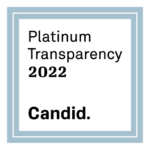Monday, December 21
Congress Reaches an Agreement on COVID-19 Relief Bill and Surprise Medical Billing
COVID Relief Package
Over the weekend, Congressional leadership reached an agreement on a new round of COVID-19 relief initiatives totaling more than $900 Billion. Votes on the bill will be held today in an effort to pass a combined 2021 omnibus spending bill and COVID-19 relief package by the time the current continuing resolution expires at midnight tonight. We have yet to see the legislative language and will get more details once we do, but according to reports, the bill includes:
- A continuation of the Universal Charitable Deduction to allow individuals to deduct $300 and couples to deduct $600 above-the-line for tax year 2021;
- $284 billion in loans through the Paycheck Protection Program (PPP);
- Continued eligibility for nonprofits to access PPP loans and new eligibility for certain 501(c)(6) organizations;
- A second draw for organizations that received a first PPP loan and can demonstrate business losses;
- $20 billion for the purchase of vaccines;
- $9 billion for vaccine distribution;
- $22 billion to help states with testing, tracing, and COVID-19 mitigation programs; and
- Direct payments of up to $600 to individuals.
An extra $300 per week in federal cash for unemployed workers through March 14. Two major areas of contention were not included in the final deal. Neither the liability shield for business against COVID-19 related litigation, a major priority for the Republicans, nor direct aid to states and localities, a major priority for the Democrats, were included.
Ending Surprise Medical Billing
After some significant last-minute negotiations, the deal is also reported to address the issue of surprise medical bills. Ending this practice has been a long-term goal of the NHC and our member patient advocacy organizations and has bipartisan support.
The omnibus includes an agreement to protect patients from medical bills for unexpected out-of-network and emergency care. The reported deal prevents out-of-network doctors from sending bills to patients they have seen at in-network hospitals. Instead, any payment dispute between providers and insurers would go straight to arbitration. An amendment to the deal would bar arbiters from basing their billing decisions on Medicare and Medicaid rates. In addition, the deal calls for insurers to submit more general information on medical costs and prescription drug spending to relevant federal agencies, to inform a government report on drug pricing trends. This is different from earlier versions that would have required insurers to disclose detailed information to employers about their drug costs and rebates.











